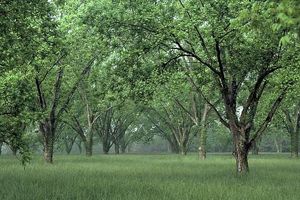
Right before the Depression, my grandparents moved from Tennessee to Florida. They bought a nine acre pecan farm in a very small town. The trees were already established, and very large. My grandfather picked, bagged, and shipped pecans to places all over the US on the outgoing trains. The train track was only about 50 yards from their house and it curved to follow the property line. One train would often pull to a side track there to wait for an oncoming train to pass. While the passengers sat waylaid waiting for the tracks to clear, my mother and her sister sold small paper bags full of pecans.
It wasn't surprising that pecans became a staple for a variety of recipes. Two of my grandmother's specialties were parched pecans and pecan pie. Parched pecans were made by slowly baking an iron skillet or tray full of halved pecans that had been topped with butter and salt until they were toasted but not burnt. Her pecan pies were thick and gooey with the most fantastic thin, flaky crust. We always had both of the these treats during the holidays. For Christmas my brother and I could also expect our own tin filled with homemade chocolate and blonde fudge, each square topped with a perfect parched pecan half.
It wasn't surprising that pecans became a staple for a variety of recipes. Two of my grandmother's specialties were parched pecans and pecan pie. Parched pecans were made by slowly baking an iron skillet or tray full of halved pecans that had been topped with butter and salt until they were toasted but not burnt. Her pecan pies were thick and gooey with the most fantastic thin, flaky crust. We always had both of the these treats during the holidays. For Christmas my brother and I could also expect our own tin filled with homemade chocolate and blonde fudge, each square topped with a perfect parched pecan half.
Preparing pecans was no small task. First, of course, we had to gather the pecans. They have two shells - the thick outer husk and the thinner inner shell. My grandfather had long bamboo poles that he used to whack the pecans free from the tree branches and outer husks. As the pecans fell to the ground, we scampered around to pick them up. Grandfather designed a little scooper to keep from bending over so much made from a tin can and a long stick. We would sit on the screen porch with bags full of pecans and begin the shelling process. Next, you had to crack the shell without damaging the whole internal pecan. Just the right pressure was required. We did this with a metal hand cracker, or you could crush two pecans against each other if your hand was large and strong enough to hold them. My dad's hands were just right for this. Sometimes we just used a hammer but the contents were usually totally smashed. Over time we tried many versions of crackers, but they were all hard work. Finally, we carefully cleaned up the pecans, pulling off the broken pieces of shell, much like cleaning a boiled egg. We used some small metal picks to make sure we removed all the woody remains leaving only the clean, meaty pecan. We felt especially lucky if we got a pecan out whole, but mostly we got them in halves. The tiny broken pieces were often eaten faster than we could work. It was a fun family time and we hardly realized we were working. Afterwards we sorted the pecans into pieces, halves, and wholes each of which would be used in particular ways. We treated the shelled pecans a little like gold, eating only a few at a time since we were aware of how much work went in to preparing them.
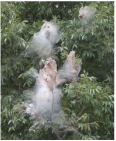
Keeping up the pecan trees was a struggle against fungus, worms, insects, poor soil, freezing, drought, squirrels, and birds. I remember my grandfather using those long cane polls to kill the web worms. He would attach rags that had been dipped in kerosene, light them, and torch the white, fuzzy worm nests. Eventually the harvest diminished and we only occasionally picked a few pecans for our own personal use.
Using pecans nowadays always reminds me of our pecan farm experiences. And by the way, we pronounced them pa-can`, not pee`-can.
"I went down into the garden of nuts to see the fruits of the valley." Song of Solomon 6:11
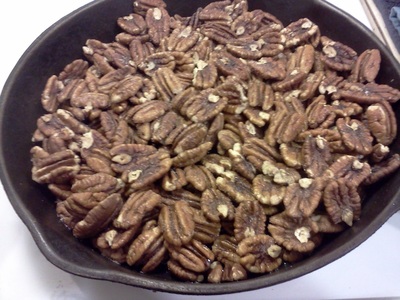
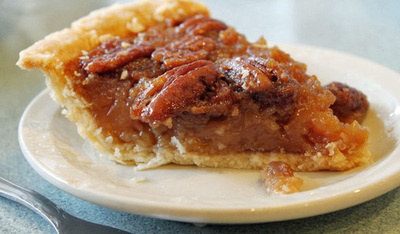
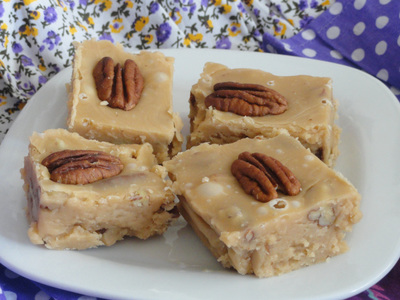
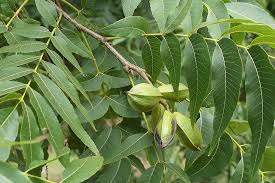
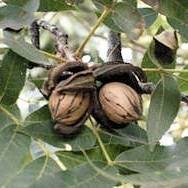
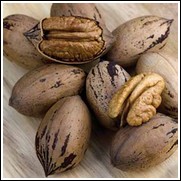
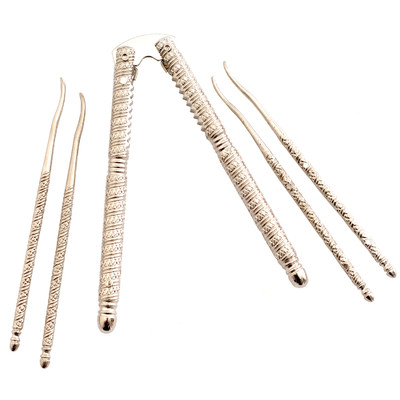
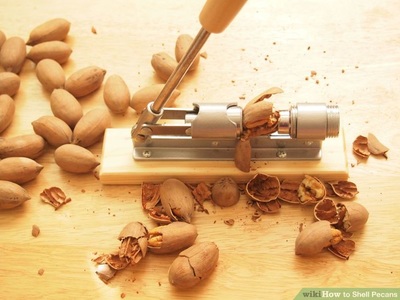
 RSS Feed
RSS Feed
